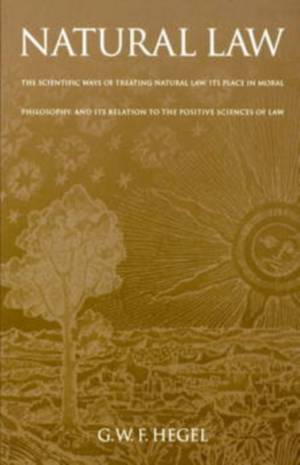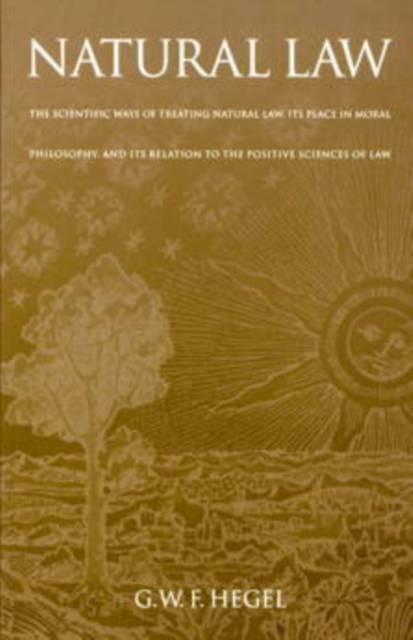
- Retrait gratuit dans votre magasin Club
- 7.000.000 titres dans notre catalogue
- Payer en toute sécurité
- Toujours un magasin près de chez vous
- Retrait gratuit dans votre magasin Club
- 7.000.0000 titres dans notre catalogue
- Payer en toute sécurité
- Toujours un magasin près de chez vous
Natural Law
The Scientific Ways of Treating Natural Law, Its Place in Moral Philosophy, and Its Relation to the Positive Sciences
G W F HegelDescription
One of the central problems in the history of moral and political philosophy since antiquity has been to explain how human society and its civil institutions came into being. In attempting to solve this problem philosophers developed the idea of natural law, which for many centuries was used to describe the system of fundamental, rational principles presumed universally to govern human behavior in society. By the eighteenth century the doctrine of natural law had engendered the related doctrine of natural rights, which gained reinforcement most famously in the American and French revolutions. According to this view, human society arose through the association of individuals who might have chosen to live alone in scattered isolation and who, in coming together, were regarded as entering into a social contract.
In this important early essay, first published in English in this definitive translation in 1975 and now returned to print, Hegel utterly rejects the notion that society is purposely formed by voluntary association. Indeed, he goes further than this, asserting in effect that the laws brought about in various countries in response to force, accident, and deliberation are far more fundamental than any law of nature supposed to be valid always and everywhere. In expounding his view Hegel not only dispenses with the empiricist explanations of Hobbes, Hume, and others but also, at the heart of this work, offers an extended critique of the so-called formalist positions of Kant and Fichte.Spécifications
Parties prenantes
- Auteur(s) :
- Traducteur(s):
- Editeur:
Contenu
- Nombre de pages :
- 144
- Langue:
- Anglais
- Collection :
Caractéristiques
- EAN:
- 9780812210835
- Date de parution :
- 01-10-75
- Format:
- Livre broché
- Format numérique:
- Trade paperback (VS)
- Dimensions :
- 140 mm x 216 mm
- Poids :
- 185 g

Les avis
Nous publions uniquement les avis qui respectent les conditions requises. Consultez nos conditions pour les avis.






